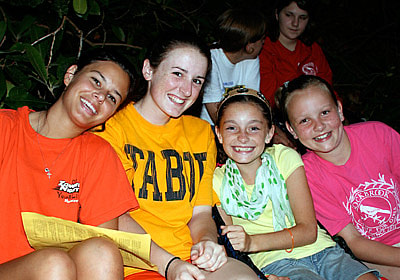There’s been another push recently, here in North Carolina and other places, to lengthen the school year by shortening the time students have off in the summer. Taking a look back at the history of schools in America, it’s interesting to see that this has been a long trend. During the pioneer days of this country children grew up on farms and helped their families with the seasonal work farming required. Most of their time was spent outside, working, and learning practical skills. This left only the winter months to supplement this “real” education with “book learning,” the kind of intellectual development we associate with school nowadays. It’s true; school used to only be 3 months of the year!
As cities grew, Americans became less tied to summer agricultural work, and so the time available for school increased. This meant the school calendar was simply extended, back into the fall and forward into the spring. The agricultural origins of our traditional school calendar, with time off in the summer, was retained even as the need for its seasonality waned. The summer, of course, became a time when all kinds of non-classroom educational opportunities could therefore flourish. Summer camps, programs to “train the eye and hand,” outdoor work and travel became an important part of growing up in America. Leading educators, John Dewey for example, came out in favor of the learning that goes on in the summer, the importance of educating the whole child, encouraging creativity and building healthy “minds and bodies.” The importance of preserving the summer as time away from the classroom was long understood and valued.
As pressures to advance the educational system in America have increased, however, school system administrators have looked to the summer “vacation” as a means to increase classroom time, and theoretically by extension student achievement. US Secretary of Education Arne Duncan put it this way when he called summer “an inexplicable, counterproductive anachronism that takes youths out of an educational setting for 2-3 months every year.” The argument here is that if we want children to learn as much as possible, they should be in school as much as possible.
Ugh. That argument, however, is based on a fundamentally flawed assumption, namely that classroom learning in school is more valuable than the education children receive over the summer. Current research has demonstrated, quite conclusively, just the opposite— that a summer camp experience, for example, provides tremendous benefits for children, unique gains far beyond what they could find at school. These are huge benefits too… some of which, like confidence, communication and leadership, serve as pillars later life. Shrinking the opportunity for children to attend summer programs and camps, in the name of academic achievement, is short-sighted and comes at a great cost.
It may be harder to measure the important life lessons gained over the summer, and it may currently be difficult to provide organized summer programs for all children, but the opportunity for crucial youth development outcomes is undeniably linked to time spent at summer camp. Shouldn’t we be doing everything we can to promote that opportunity for our children? Yes we should, and that means preserving the summer and resisting the temptation to lengthen the school year.



0 Comments
Comment section